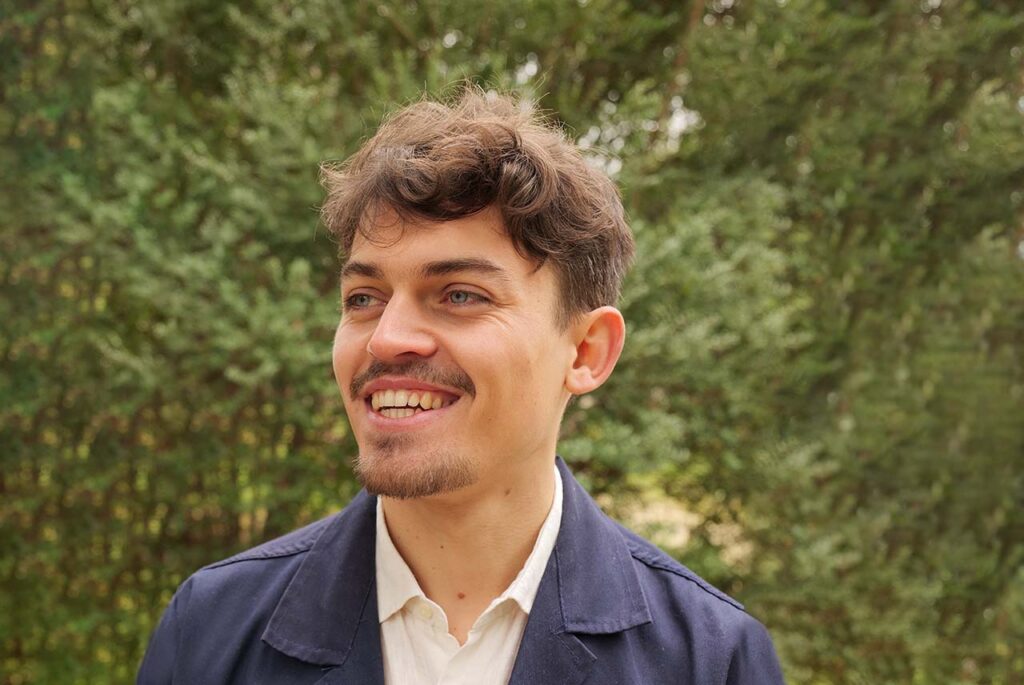Scanorhize: soil life for sustainable agriculture
This scanner buried in the ground is capable of tracking the evolution of root systems to better understand the impact of fertilizers, irrigation, or drought. An innovative project developed using devices from the Montpellier University Innovation Cluster in Montpellier, it is particularly promising at a time when the agricultural sector is facing a major crisis.

Analyze the impact of fertilizers on soil in real time
A sensor buried in the soil could help "accelerate the transition to sustainable agriculture." That, in a nutshell, is the ambition behind Scanorhize, conceived at the Research Joint Research Unit, with the first prototypes produced in 2017 on the initiative of researcher Christophe Jourdan, CIRAD Montpellier.
In concrete terms, "Scanorhize is a kind of camera buried in the ground, capable of producing images of the root system by creating two-dimensional slices,"explains William Arditi, future president of the start-up that is set to begin using the sensor in the coming months. "The idea is to capture images dynamically in order to observe soil changes and understand the impact of fertilizers, drought, and irrigation." The device is connected to a box that transfers the images directly to the cloud, before passing them on to artificial intelligence capable of recognizing roots, soil biodiversity, and analyzing the evolution of the root system. This innovative technology could soon be patented.
Initially dedicated to research, this tool quickly aroused the curiosity of other players who approached the laboratory. "Seed producers and manufacturers of plant protection products showed great interest," adds William Arditi. "For them, soil is becoming an increasingly important issue," particularly in terms of adapting their products to climate change, while respecting sustainable agriculture.
A start-up supported by Montpellier University Hospital's initiatives
In 2023, Christophe Jourdan and SATT AxLR (Société d’accélération du transfert de technologies) set out to find someone to develop a start-up based on this innovation. William Arditi responded immediately to this proposal via the Les Deeptech platform managed by Bpifrance. An engineer by training, the young man had already worked on a technology transfer project involving a portable artificial lung. "But this time, I wanted to be part of something that would have an impact on society in the short term," he explains. After an initial market study, William Arditi was officially recruited in February 2024.
As part of the maturation program, Satt AxLR is supporting William's salary, the services required for the industrialization of the sensors, and the development of the software component for one year. At the same time, William Arditi received a French Tech Lab (BFT Lab) grant from Bpifrance, which enabled him to finance sales training, market research, and an update on regulatory aspects. The engineer also completed the Première Marche program at the BIC (Business & Innovation Center) in Montpellier. "It was quite short and intense. It allowed me to test all aspects of creating a start-up."
From February to June 2024, the future entrepreneur took part in the Pépite Deeptech program offered by Initium, the University of Montpellier's incubator. The aim of the program is to support project leaders working on themes such as "Feeding," "Care," and "Protect," and to provide them with numerous training courses, expert advice, and coaching sessions to help them perfect the structure of their future start-up. "This allows us to work on intellectual property, commercial strategy, entrepreneurial posture, and even the pitch," he explains. "It's always interesting to get feedback from experts in each field when you're starting a project like this." This is the first step in the support offered by the UM incubator, which will run for three years, including the pre-incubation and co-incubation phases of the start-up.
With his new partner Louis Marot, William Arditi has just entered Bpifrance's i-Lab competition in order to develop a research and development program aimed at overcoming the final technological hurdles to transform Scanorhize"into a decision-making tool for agriculture," says the engineer."After scanning the root system, it could tell us when to fertilize, when to irrigate, which variety to use..." This is another step towards putting this ingenious tool at the service of ecological transition.
Incubated at AgroVallée, supported by the Initium incubator and Montpellier's BIC, the start-up is expected to launch at the end of the SATT AxLR maturation program in June 2025. This is a great collective success for Montpellier's PUI, which is seeing a new Montpellier-based start-up mark a turning point in sustainable agriculture!